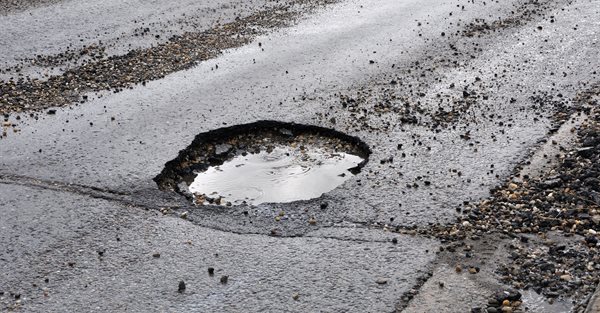A report from the House of Commons public accounts committee (PAC) today calls out the Department for Transport (DfT) for not taking its responsibilities and use of public money on local roads sufficiently seriously.
Department officials admitted to the committee that government data on local roads were inadequate. According to government data, the condition of local roads is stable. But private sector surveys indicate that the condition of local roads is worsening, as public satisfaction falls and pothole-related incidents rise. With information only collected on unclassified roads on a voluntary basis from local authorities, the DfT admitted to the PAC that its data is not good enough.
The Asphalt Industry Alliance’s 2024 annual local authority road maintenance (ALARM) survey put the cost of fixing the backlog of local road repairs at £16.3bn.
Over a billion pounds a year goes to local authorities as part of the government’s funding to maintain local roads – but the PAC’s inquiry found that the DfT neither knows exactly how local authorities spend its funding as it is not ring-fenced, nor what it wants to achieve with it. The report further warns that funding is not being targeted at where it is most needed. The DfT does not take into account traffic volumes, underlying road condition or local environmental conditions such as whether a road is prone to flooding.
The PAC report, Condition and maintenance of Local Roads in England, also criticises the short-term approach of central government funding for local authorities to repair local roads, which the DfT admitted to the inquiry is not best value for money. Providing only annual funding is likely to have pushed councils to focus more on reactive repair work, rather than preventing problems occurring in the first place. The committee report calls on government to simplify its funding to local authorities (currently given through 12 different funding pots) and to provide longer-term certainty on the amount and duration of funding.
More support and guidance must be provided to local authorities to deal with current and future challenges in maintaining local roads, in particular on how best to support safety and accessibility for all road users. The government should also be considering how best to manage and prepare for technology advances such as autonomous vehicles and the effect of maintenance on roads and bridges of heavier electric heavy goods vehicles, the report said.
Sir Geoffrey Clifton-Brown MP, chair of the public accounts committee, said: “The declining state of England’s local roads is a national embarrassment. As well as harming the prospects for our economy and communities’ own social wellbeing, highways riddled with potholes pose an increasing safety threat to road users. Alarmingly, however, not only is the state of our local roads on the downslope, our inquiry shows government are having to find out about these issues from industry bodies and road users themselves due to their own patchy data.
“This committee has long raised concerns around a failure across government departments to effectively fund and plan for the future, a theme that is certainly on show here, along with an overly tangled web of accountability. This committee shares our constituents’ frustration at these issues, and hope our recommendations go some way to help the government take better responsibility for them.”
The PAC report confirms what the Asphalt Industry Alliance has been saying for years. David Giles, chair of the Asphalt Industry Alliance, said: “The findings of the Public Account Committee’s (PAC) inquiry into local roads in England highlight the critical challenges facing our local roads, many of which our Annual Local Authority Road Maintenance (ALARM) survey has reported for many years.
“We were reassured to see that the PAC agrees that a step-change is needed. Its recommendations for longer-term and simplified funding streams so that local authorities can proactively repair and maintain local roads and deliver better value for taxpayers, is what we’ve been calling for.
“We also back its call for greater consistency in how road conditions are assessed, and how this could translate into needs-based funding, as well as the need to evaluate and revise local authority delivery approaches as a means of getting our roads back on track.”
“As the government considers its spending review it’s clear that the PAC’s recommendations need to be adopted in full if we want an improved local road network that is resilient and fit for the future.”

